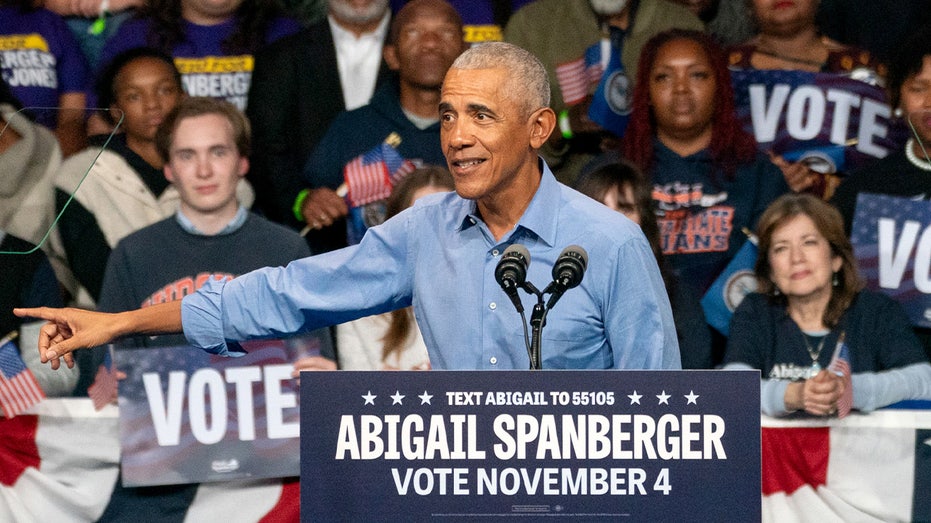The atmosphere crackled with anticipation as former President Barack Obama made a late-season return to the campaign trail. His mission: to galvanize support for Democratic gubernatorial candidates in Virginia and New Jersey. The stakes were high, the races tight, and the outcome would send a powerful message about the nation’s political pulse.
When the dust settled, Democrats had secured victories in both states. Obama quickly released a statement, a surge of optimism woven into his words. He saw the wins as proof that a united front, focused on genuine issues and strong leadership, could still prevail. Yet, even in triumph, he acknowledged the work ahead, hinting at a future still shrouded in uncertainty.
Observers debated the true impact of Obama’s presence. Was it a game-changer, a surge of charisma that tipped the scales? Or was his influence waning, overshadowed by the dominant force of the current administration and its economic policies? Some argued his star power was diminishing, that voters were less focused on the past and more concerned with present realities.
The campaigns themselves centered on a stark contrast. Democrats relentlessly criticized the current administration, painting a picture of economic hardship and a nation veering off course. They pledged to address affordability and housing crises at the state level, directly challenging policies emanating from Washington. Obama echoed these sentiments, framing the elections as a referendum on the direction of the country.
Economic anxieties were undeniably at the forefront of voters’ minds. In New Jersey, the burden of high taxes loomed large. In Virginia, the economy was the paramount concern, eclipsing even healthcare in importance. This created a paradox: while many Virginians felt their local economy was stable, a significant majority believed the nation as a whole was heading in the wrong direction.
Analysts pointed to a growing disconnect. Despite economic indicators showing some improvement, many voters weren’t feeling the benefits. Inflation, though cooling, remained a persistent worry. The sense that the current administration wasn’t delivering on its economic promises fueled a deep-seated frustration among the electorate.
The victories, some suggested, weren’t necessarily a resounding endorsement of the Democrats, but rather a rejection of the alternative. The “anti-Trump energy” continued to resonate, driving voters to the polls in search of a different path. The question now became whether the Democrats could capitalize on this momentum and translate it into lasting change.
Obama’s rallies were scenes of fervent enthusiasm. Supporters flocked to see the former president, drawn by a message of hope and a yearning for a return to what they perceived as a more stable and inclusive era. The crowds were so large in some locations that attendees were turned away, a testament to the enduring appeal of his message.
The election results sparked a flurry of analysis, with both sides attempting to decipher the meaning behind the outcome. The current administration, while not directly involved in the races, insisted that its economic policies were on the right track and would ultimately benefit all Americans. The debate over the nation’s economic future, and the role of government in shaping it, was far from over.
Ultimately, the victories in Virginia and New Jersey represented a complex interplay of factors. Obama’s presence undoubtedly energized the Democratic base, but the underlying currents of economic anxiety and political discontent proved to be the most powerful forces at play. The elections served as a potent reminder that voters are driven by their lived experiences, and that promises of a brighter future must be backed by tangible results.






